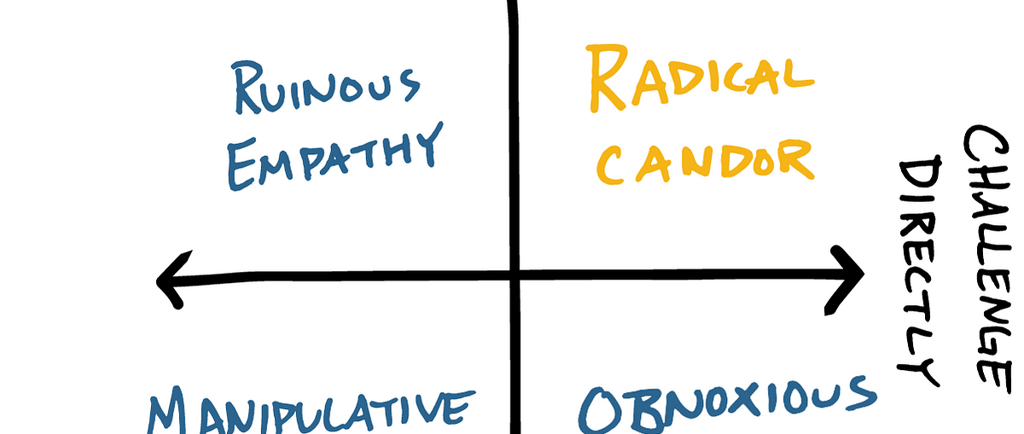Most leaders think they’re being honest. But are they being helpful?
If you lead, coach, or influence others—this framework will change how you give and receive feedback.
7/25/20252 min read


Radical Candor:
The Leadership Superpower That Drives Growth Without Fear
In today’s fast-paced, innovation-driven workplaces, feedback isn’t optional—it’s essential. But how that feedback is delivered can mean the difference between empowered teams… and eroded trust.
Enter Radical Candor—a leadership framework popularized by Kim Scott, author of Radical Candor: Be a Kick-Ass Boss Without Losing Your Humanity. It’s not just about speaking your mind. It’s about doing it in a way that drives performance and builds relationships.
What Is Radical Candor?
Radical Candor is the art of challenging directly while caring personally.
It’s the ability to say what needs to be said—even when it’s hard—because you genuinely care about the other person’s success and growth.
At its best, radical candor fosters:
🧠 Psychological safety
🚀 Accelerated learning
🔄 Continuous feedback loops
💬 Trust-based conversations
But here's the catch: many leaders think they’re practicing radical candor… when in fact, they’ve fallen into one of its toxic counterparts.
What Radical Candor Is Not (The 3 Dead Zones)
Kim Scott outlines three behaviors that masquerade as candor—but actually harm trust and innovation:
1. Obnoxious Aggression (Challenge without Care)
You speak your mind—but without empathy or context. It’s blunt, harsh, and often ego-driven. Think: “brutally honest” without the “honest growth” part.
👉 Outcome: Fear, resentment, and a shutdown culture.
2. Ruinous Empathy (Care without Challenge)
You’re kind and supportive—but avoid difficult truths. You let poor performance slide because you don’t want to hurt feelings.
👉 Outcome: Stagnation, mediocrity, and eventual disillusionment.
3. Manipulative Insincerity (No Care, No Challenge)
Feedback is vague, avoidant, or self-serving. Think politics, gossip, or passive-aggressive comments.
👉 Outcome: Mistrust and disengagement.
✅ Radical Candor: The Growth Zone
When leaders care personally and challenge directly, feedback becomes a gift—not a threat.
Radical Candor isn’t about being “nice.” It’s about being real, with kindness. It’s telling your team:
“I see your potential, and I won’t let you settle for less.”
And research backs this up:
A 2023 Gallup study found that employees who receive direct and caring feedback are 3.6x more likely to be engaged.
Harvard research shows that teams with high psychological safety are more innovative, adaptable, and resilient.
How to Practice Radical Candor in Daily Leadership
Ask for feedback first – Create a culture where everyone, including you, is open to growth.
Be specific – Don’t generalize. Use examples and be clear about the impact.
Do it live, not later – Don’t save it for a performance review. Give feedback in the moment.
Follow up with care – Check in. Support their growth after the tough conversation.
Final Thought
In a world of rapid transformation and AI-fueled disruption, leaders who master Radical Candor will build the cultures that thrive—not just survive.
Because the truth is: great teams aren’t built on silence or sugar-coating.
They’re built on courageous conversations, mutual respect, and the belief that feedback is love in action.
So next time you need to give tough feedback, ask yourself:
Am I challenging directly and caring personally?
That’s Radical Candor—and that’s the future of leadership.
Want to explore more on building high-trust, high-performing teams?
Let’s talk about how our leadership development programs or coaching can help your organization practice Radical Candor at scale.
#RadicalCandor #Leadership #KimScott #FeedbackCulture #TeamTrust #InnovationLeadership #EmotionalIntelligence #ManagementSkills #PsychologicalSafety #FutureOfWork #CandorOverComfort
